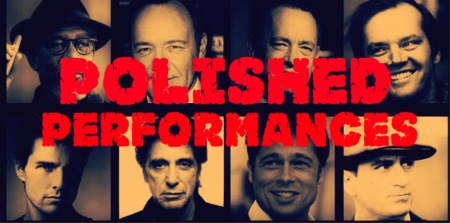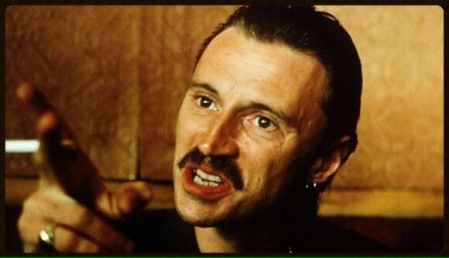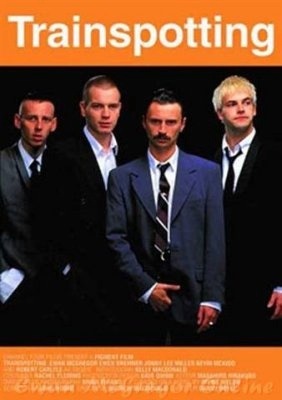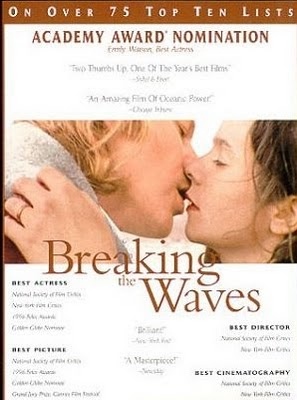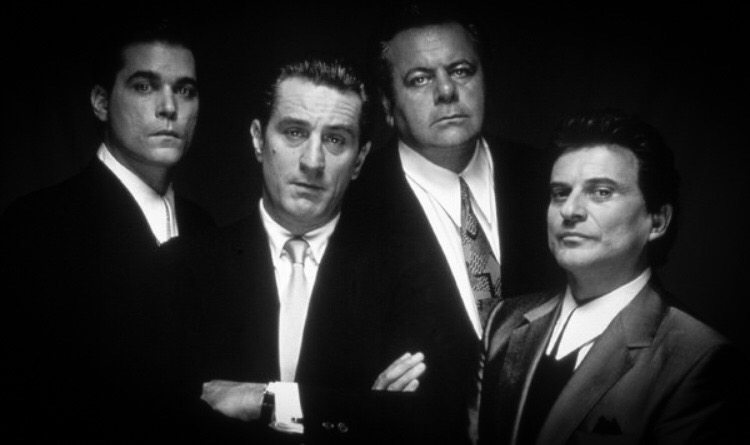
Director: Barry Levinson.
Screenplay: Barry Levinson.
Starring: Jason Patric, Robert DeNiro, Brad Pitt, Dustin Hoffman, Kevin Bacon, Minnie Driver, Ron Eldard, Billy Crudup, Brad Renfro, Joe Perrino, Geoffrey Wigdor, Jonathan Tucker, Bruno Kirby, Vittorio Gassman, Terry Kinney, Frank Medrano, Aida Turturro, Dash Mihok.
After the massive box-office flop of “Toys” in 1992 and the overlooked, straight to dvd, “Jimmy Hollywood“, director Barry Levinson seemed to be in need of some stronger material. As a result, he decided on a couple of adaptations; the first was Michael Crichton’s “Disclosure” followed by “Sleepers“, the controversial novel by Lorenzo Carcaterra, which served as a reminder that Levinson still had something to offer.
Growing up in Hell’s Kitchen, four close friends, Shakes (Joe Perinno), Michael (Brad Renfro), John (Geoffrey Wigdor) and Tommy (Jonathan Tucker) fill their days playing pranks and making their own entertainment. However, one of their pranks lead to a man getting seriously injured and they are sentenced to time in the Wilkenson Detention Centre in upstate New York. In the centre they are subjected to beatings and sexual abuse by the guards. Over ten years later, two of the boys take revenge on one of them (Kevin Bacon), which drags up the past and involves everyone they know.
What we have with “Sleepers” is a stellar cast, a more than capable director and a story that’s purportedly based on fact. There’s really not that far you can wrong in these instances but, unfortunately, it’s the “based on fact” angle that let’s this film down. Everything else is handled with skill, but no matter how well it’s delivered, it leaves an aroma that smells vaguely of garbage. It’s too far fetched and under closer scrutiny and investigation, the events that writer Lorenzo Carcaterra claims to be true, are unfounded. There simply isn’t any evidence of them. Now, if this film just played out as a piece of storytelling then that issue wouldn’t exist and you’d be able to sit back and enjoy what this film has to offer. And what it has to offer is plentiful. The cinematography by (Scorsese regular) Michael Ballhaus, captures the look and feel for the times that reflect, in some ways, an urban version of “Stand By Me” in the earlier part of the film and Levinson does a very professional job on his direction duties. Where his strength lies is in drawing out brilliant performances from his impressively assembled cast: Throughout an abundance of familiar names, it’s Patric (playing writer, Carcaterra) that get’s the most focus but the rest still get enough to work with; Bacon verges on the stereotypical side but still channels an effective sadistic presence; Pitt, in a lesser role (when he was still on the rise) captures the cocksure arrogance required and the always reliable and masterful Hoffman brings a lot of depth and humour with his subtle mannerisms. At the risk of sounding biased, though, it’s DeNiro that impresses most as the avuncular priest, Father Bobby. He delivers one of the most endearing and charismatic performances of his career and happens to have a moment in the film where his expression is solely focussed on, as he hears about the tragic and abusive events that took place. He doesn’t utter a word, but his pain, anguish and compassion is expressed entirely and powerfully within his eyes. The only drawback amongst the performances is that the greats of DeNiro and Hoffman don’t get a chance to share much screen time together. (In fairness, Levinson rectified this in his later movie “Wag The Dog” and subsequently they have shared the screen in the “Meet The Parents” sequels). These two fantastic actors have never really went toe-to-toe on dramatic terms, though, and this film seems like a missed opportunity on that level. As for the structure itself, it’s a film of two halves; the first concentrating on the boys’ high jinks (again, with great performances from it’s young actors – Joe Perrino and Brad Renfro being the standouts) while the latter half descends into a formulaic courtroom drama which stretches credulity and eschews any form of logic in order to further the plot. It’s during this, that the “true” nature of the story becomes seriously questionable and we’re also left with an overhanging, dubious message on justice. Despite these issues, though, there are many highlights to be found and at nearly two and half hours long, it’s never dull. Whether or not it’s true is another matter, but at the very least, Carcaterra has written an emotional and involving tale.
Flawed and uneven, with a conclusion that simply doesn’t convince, but if you’re able to sidestep these faults then there’s still a very good film at it’s core.
Mark Walker

 Director: Lee Tamahori.
Director: Lee Tamahori.